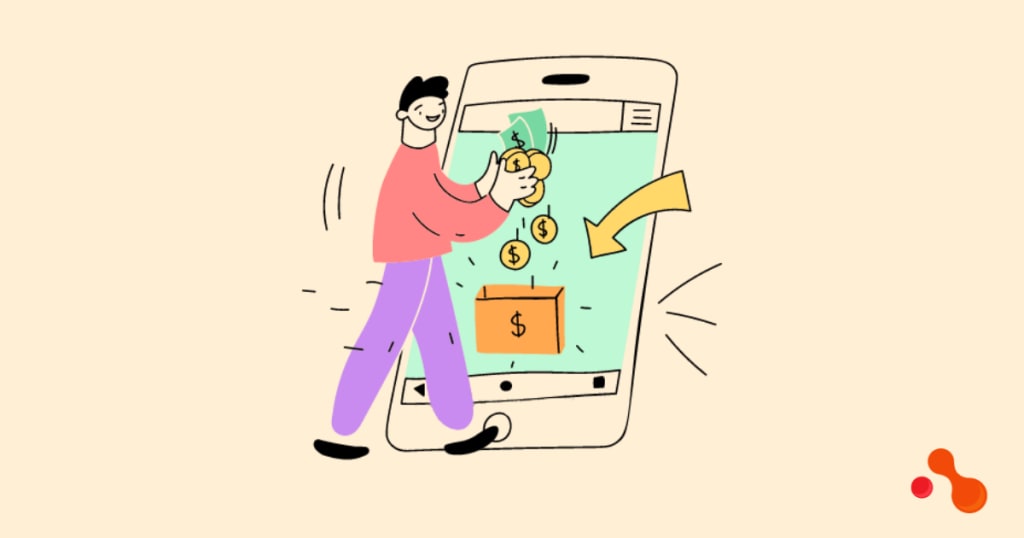Enhancing Financial Inclusion and Empowering Underserved Communities: Fintech Apps
Fintech apps have revolutionized how we manage our finances, particularly in underserved communities.

Introduction
Fintech apps have revolutionized how we manage our finances, particularly in underserved communities. These innovative mobile applications and websites are designed to enhance financial inclusion by providing accessible and user-friendly financial services. With the rapid development of fintech app solutions, individuals previously excluded from traditional banking systems can now access banking services, make secure transactions, and build their financial well-being. In this blog, we will explore how fintech apps empower underserved communities and enable financial inclusion for all.
The Current Landscape of Financial Inclusion
Financial inclusion refers to the availability and accessibility of financial services to all individuals, including those from underserved communities. Unfortunately, many worldwide still face challenges accessing these services, which can significantly affect economic growth and social development.
Challenges Faced by Underserved Communities:
- Underserved communities often have limited access to traditional financial services like banks and credit unions.
- They may reside in remote areas without nearby bank branches, making it difficult to conduct financial transactions.
- Many people in these communities lack proper identification documents, hindering their ability to open bank accounts.
- Low-income individuals may not meet the requirements for minimum balances or credit checks set by traditional financial institutions.
- Some communities face language barriers or low financial literacy levels, making it hard to understand and use formal financial services.
Impact on Economic Growth and Social Development:
- When people cannot access financial services, they miss out on opportunities for savings, investment, and credit, limiting their ability to improve their economic well-being.
- Lack of access to financial services can lead to a reliance on informal and often risky lending options, perpetuating cycles of poverty.
- In underserved areas, businesses may struggle to grow and innovate without proper financing options.
- Financial inclusion is crucial in reducing income inequality and promoting overall social development.
Fintech Solutions for Financial Inclusion:
- Fintech (Financial Technology) companies are utilizing technology to bridge the gap in financial inclusion and offer accessible solutions.
- Fintech app development enables the creation of mobile applications that provide convenient and user-friendly financial services.
- These mobile apps can help users manage their money, make digital payments, and access various financial products without needing a physical bank branch.
- Fintech website development offers online platforms for financial services, making them accessible to anyone with internet connectivity.
- With fintech app development solutions, users can enjoy personalized financial tools, easier loan applications, and better access to credit, even with limited traditional banking options.
Role of Fintech Apps in Promoting Financial Inclusion
Fintech apps have emerged as powerful tools in promoting financial inclusion by providing access to banking services, offering payment solutions, enabling personal finance management, and facilitating access to credit and microloans. Let's explore each of these roles in more detail:
A. Access to Banking Services
- Fintech apps allow individuals to open bank accounts digitally, eliminating the need for physical visits to a bank branch.
- They provide a platform for users to check account balances, make transactions, and transfer money conveniently from their mobile devices.
- These apps enable users to access various financial services, such as loans, insurance, and investment options, without requiring a physical presence at a bank.
B. Payment Solutions and Digital Wallets
- Fintech apps offer secure and convenient payment solutions, allowing users to make transactions digitally.
- Digital wallets within these apps store payment card information, making purchasing online or in physical stores easier without carrying physical cards.
- Fintech apps often support various payment methods promoting cashless transactions, including mobile payments, peer-to-peer transfers, and contactless payments.
C. Personal Finance Management
- Fintech apps provide features to help users track and manage their finances effectively.
- They offer budgeting tools that categorize expenses, analyze spending patterns, and provide insights to help users make informed financial decisions.
- Users can set financial goals, monitor their progress, and receive notifications or reminders to stay on track with their financial objectives.
D. Access to Credit and Microloans
- Fintech apps have democratized access to credit by providing alternative lending platforms.
- These apps leverage data analytics and alternative credit scoring models to assess creditworthiness, making it easier for underserved individuals to obtain loans.
- They offer microloans with lower barriers to entry, allowing small business owners and individuals with limited credit histories to access funds for their financial needs.
Benefits and Impact of Fintech Apps on Underserved Communities
In recent years, the rise of Fintech Apps has been a game-changer for underserved communities, providing them access to financial services, fostering empowerment through financial literacy, and contributing to economic growth and poverty reduction. Let's delve into the benefits and impacts of these apps in a simple and easy-to-understand way:
Increased Access to Financial Services:
- Fintech App development has made it possible for financial services to be accessible via smartphones and computers.
- Mobile applications and websites are user-friendly, allowing people to perform financial transactions easily.
- Even those in remote or rural areas can now access banking services without physical branches.
Empowerment through Financial Literacy:
- Fintech Apps don't just facilitate transactions; they also educate users about financial matters.
- Users can learn about budgeting, saving, investing, and other essential financial skills through interactive features.
- This newfound financial knowledge empowers individuals to make informed decisions about their money.
Economic Growth and Poverty Reduction:
- By providing convenient and inclusive financial services, Fintech Apps promote economic activities.
- Small businesses can access loans and financial support, spurring entrepreneurship and economic growth.
- With improved financial literacy and access to credit, underserved communities can break free from the cycle of poverty.
Challenges and Limitations
Fintech, or financial technology, has rapidly grown in recent years, providing innovative solutions to the financial industry. Fintech applications, whether on mobile devices or websites, have revolutionized how we manage our finances. However, there are several challenges and limitations that developers and users encounter in the process. Let's explore some of the key hurdles in fintech app development and adoption:
Technological barriers and infrastructure limitations:
- Compatibility issues: Fintech apps must be compatible with various operating systems, devices, and screen sizes, which can be a complex task for developers.
- Connectivity challenges: Reliable internet connectivity is crucial for fintech apps to function seamlessly. However, accessing these apps becomes difficult in areas with limited connectivity or poor network coverage.
- Backend complexity: Developing robust backend systems that can handle a large volume of transactions and data securely requires significant technical expertise.
Trust and security concerns:
- Data privacy: Fintech apps deal with sensitive financial information, making data privacy a top concern. Users may hesitate to share their financial data, fearing potential breaches or misuse.
- Cybersecurity risks: Fintech apps are susceptible to hacking attempts and cyber threats, which can compromise user accounts and financial transactions. Ensuring robust security measures is essential but challenging.
- Fraud prevention: Fintech apps must implement effective fraud detection and prevention mechanisms to safeguard users' financial assets.
Digital literacy and user adoption challenges:
- Limited financial knowledge: Some users may struggle to understand complex financial concepts and navigate fintech apps effectively. Providing user-friendly interfaces and educational resources can help address this limitation.
- Resistance to change: Many individuals, especially older generations, may be reluctant to adopt new financial technologies due to a lack of familiarity or trust in traditional banking methods.
- Accessibility barriers: Fintech apps should consider accessibility features to accommodate users with disabilities and ensure an inclusive user experience.
Conclusion
Fintech app development has paved the way for greater financial inclusion and empowerment of underserved communities. These innovative solutions have bridged the gap between traditional banking services and individuals previously excluded from the financial system. With user-friendly interfaces and secure transactions, fintech apps have made banking services accessible to a wider population, enabling them to manage their finances effectively. As the fintech industry continues to evolve, it is crucial to focus on developing inclusive solutions that cater to the diverse needs of underserved communities, ultimately creating a more inclusive and financially empowered society.
About the Creator
Mukesh Ram
I founded Acquaint Softtech Private Limited with a vision to make quality developers affordable to everyone. With my blood, sweat, and tears I haven’t just been able to sustain but thrive over the years.






Comments
Mukesh Ram is not accepting comments at the moment
Want to show your support? Send them a one-off tip.